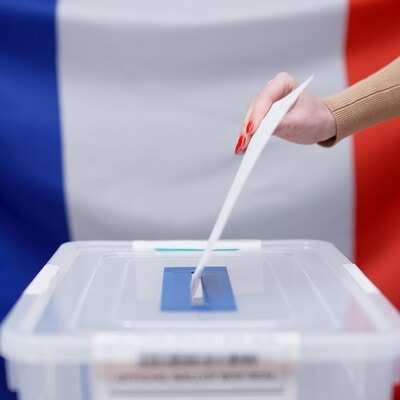Political leaders of the left-wing camp that came in first in France’s parliamentary elections on Sunday have signalled their intention to govern in line with their tax-and-spend policies, but with the left lacking a majority, centre-right parties have asserted their role.
The unexpected result of the snap election has plunged France into uncertainty ahead of the Paris Olympics, with no clear path to a stable government capable of passing legislation through a divided parliament.
Click here to connect with us on WhatsApp
The left-wing New Popular Front (NFP) won the most seats in the National Assembly but was about 100 seats short of an absolute majority. President Emmanuel Macron’s centrist party came in second and the far-right National Rally (RN) came in third.
“The path to power is very narrow and very fragile,” said Fabien Roussel, leader of the Communist party, one of the NFP’s smaller members.
“But we have to make an effort. The president of the republic has to let us govern,” he told RTL radio on Tuesday morning.
NFP leaders have met several times behind closed doors since Sunday night, trying to hammer out an agreement on who should be prime minister and how they should govern without a majority.
France is likely to endure protracted negotiations as investors worry about the country’s financial difficulties.
Macron, whose term ends in 2027, is unlikely to be able to lead policy again after he lost last month’s European elections to the far-right RN and to the left in early parliamentary elections he called against the wishes of some of his supporters, including Prime Minister Gabriel Attal.
Jean-Luc Mélenchon, leader of the far-left Unbowed France party, said an NFP government should fully implement his party’s policies, which include raising the minimum wage, lowering the retirement age and imposing price caps on fuel, electricity and some staples.
“You can’t fragment” his policy programme, he told TF1 television late on Monday, ruling out the idea of a coalition government with parties other than the NFP.
Mutual proposals
Others within the NFP seem more willing to compromise.
“We have to reach out to other people,” Roussel said.
Centrists have pointed out that the NFP lacks a majority to govern on its own and have suggested the league should be dissolved to allow more moderate forces to form a broader coalition government, excluding the divisive Mélenchon party and the Indomitable France Party.
Yaël Braun-Pivet, a member of Macron’s Renaissance party and outgoing National Assembly president, called on centre-left, environmentalist, centrist and centre-right parties to agree on a 12- to 18-month governing plan with agreeable measures.
“I am reaching out,” she told France Interradio.
However, such proposals from the centrists were rejected by NFP members, who rejected the idea of breaking up the alliance.
Some on the left countered the centrist proposal with the opposite solution, namely that the centrist camp should break up and some of it should support the NFP.
“Frankly, we are thinking about left-wing Macronists who could join us. We are open to that,” Joanna Rolland, the Socialist mayor of Nantes, told France 2 television.
Who will become prime minister?
With it unclear when a new government would be formed, President Macron on Monday asked Prime Minister Attal to stay on in his post for the time being to maintain stability.
There appears to be no agreement within the NFP camp on who should replace Attal.
Mélenchon and his Unbowed French League have all said someone from their party, the largest of the New Generation Parties (NFP), should become prime minister.
Asked by TF1 if he wanted the job, Mélenchon did not rule out the possibility of him taking the position, but said it was not necessary for him to take it.
“We in an unyielding France have several candidates we can recommend,” he said, naming his close aides Bompard, Mathilde Pano and Clemence Guetto.
But other NFP leaders say Mr Mélenchon is too divisive and disagree that a government leader must come from France Indefatigable.
“Jean-Luc Mélenchon is not the man to lead an NFP government,” Rolland said.
Several names have been floating around in the French media.
The names that have come up most frequently since the election are Socialist leader Olivier Faure, Raphaël Glucksmann, who led France’s left-wing candidate in the European elections, and Marine Tondrier, leader of the Green Party.

